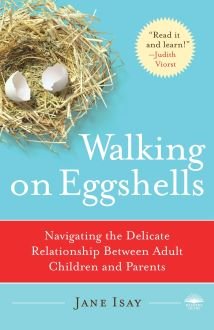8 Books to Help Repair Relationships
As an Amazon affiliate, I may receive a commission for purchases made through these links at no additional cost to you.
Thank you for supporting this site.
Do you get along perfectly with everyone in your extended family? Or do you have a difficult daughter-in-law? A strained relationship with your son or daughter? A toxic mother-in-law? A son-in-law who you just don’t like?
You aren’t alone. Family drama and complicated dynamics are incredibly common. When a child’s parents and grandparents have a difficult relationship, the child misses out on a grandparent’s love and positive influence. Parents miss out on having the support of a caring village. And grandparents miss out on being an involved part of their family’s life. Working to resolve family conflicts and improve relationships is worth the effort.
We’ve put together a list of books that have proven helpful for others as they work to improve their family relationships. If you are struggling with problems with in-laws, contending with ignored boundaries, or dealing with difficult or toxic family members, look through this list and see if there is a book that might help you. While a book is no substitute for professional counseling or therapy, it can be an important first step in understanding where the issues lie.
Walking on Eggshells: Navigating the Delicate Relationship Between Adult Children and Parents
by Jane Isay
The shift from parenting children to adults can be daunting. In Walking on Eggshells, Isay offers advice and real-life experiences to illustrate the difficulties that we may encounter. Her interviews with both adult children and their parents offer inspiration and insight that will help you stay connected as your grown children form their own lives and families. This is a great book for grandparents who are confused or hurt by their children as they’ve “grown and flown”.
The Good Life: Lessons from the World's Longest Scientific Study of Happiness
by Robert Waldinger M.D. and Marc Schulz Ph.D
The most outstanding result in the famous Harvard Study of Adult Development wasn't some newfangled tip or trick, but rather a fact we've always known: our relationships define the quality of our lives. Waldinger and Schulz focus on how to build relationships, repair them, and, most importantly, how to maintain them, in order to live your happiest, best life. If you aren’t sure the work to improve your relationships is worth it, please read this book before giving up.
Fault Lines Fractured Families and How to Mend Them
by Karl Pillemer Ph.D.
If your family problems have led to estrangement, Pillemer’s research from the Cornell Reconciliation Project may provide the encouragement you need. As you read the interviews with other estranged family members, and those who have worked to repair the rifts, you will see two things. First, you are not alone. More important, you can mend your family. This book is an excellent first step if you are hoping to reconcile with a family member—or just want to make sure you avoid estrangement.
Dealing with People You Can't Stand: How to Bring Out the Best in People at Their Worst
by Rick Kirschner & Rick Brinkman
While this is not aimed specifically at families, it has solid advice for those who are stuck with an in-law they just don’t like. Kirschner and Brinkman offer tools that will help you bring out the best in people whose behavior makes you crazy.. Revised in January 2024, the current edition contains even more advice for the difficulties that current society faces.
Set Boundaries, Find Peace: A Guide to Reclaiming Yourself
by Nedra Glover Tawwab
When we think about how to improve our relationships, especially family relationships, it's unlikely that “boundaries” is the first word that comes to mind. However, psychologist Nedra Glover Tawwab claims that boundaries are the foundation of any good relationship. When we learn how to set boundaries consistently and respectfully, we'll find greater freedom and happiness in our relationships. In this book, Tawwab defines boundaries, provides specific words for how to set them, and helps troubleshoot potential boundary problems.
Adult Children of Emotionally Immature Parents: How to Heal from Distant, Rejecting, or Self-Involved Parents
by Lindsay C. Gibson
This book's title doesn't mince words or beat around the bush. The book is for adults who grew up with parents who put their own needs first and made the child feel unlovable. If this description fits you, the book will help you redefine your childhood memories, set boundaries in your current parent/child relationship, and move forward in giving yourself the care that you needed so badly as a child.
How to Win Friends and Influence People
by Dale Carnegie
This is a book you've heard about, but probably never read. Consider this to be a reminder of its relevance and charm. Written in the 1930's, Carnegie details how to talk with people, how to have a conversation with someone who disagrees with you, and how to develop a deep curiosity about others. Though the book is often referenced in corporate culture, Carnegie’s empathetic and timeless view about how to interact with other people will improve your family and social relationships as well.
Self-Compassion: The Proven Power of Being Kind to Yourself
by Dr. Kristin Neff
On the surface, this book is about your own view of yourself. However, author Kristin Neff shows that it is impossible to have judgement-free relationships with others if you don't have one with yourself first. Through self-compassion, we learn to have empathy for our mistakes and failures. That then allows us to extend that empathy to others. This book is a fantastic foundation for anyone looking to improve their relationships. It doesn't talk about relationships directly, but the work done here will impact every relationship you have.









